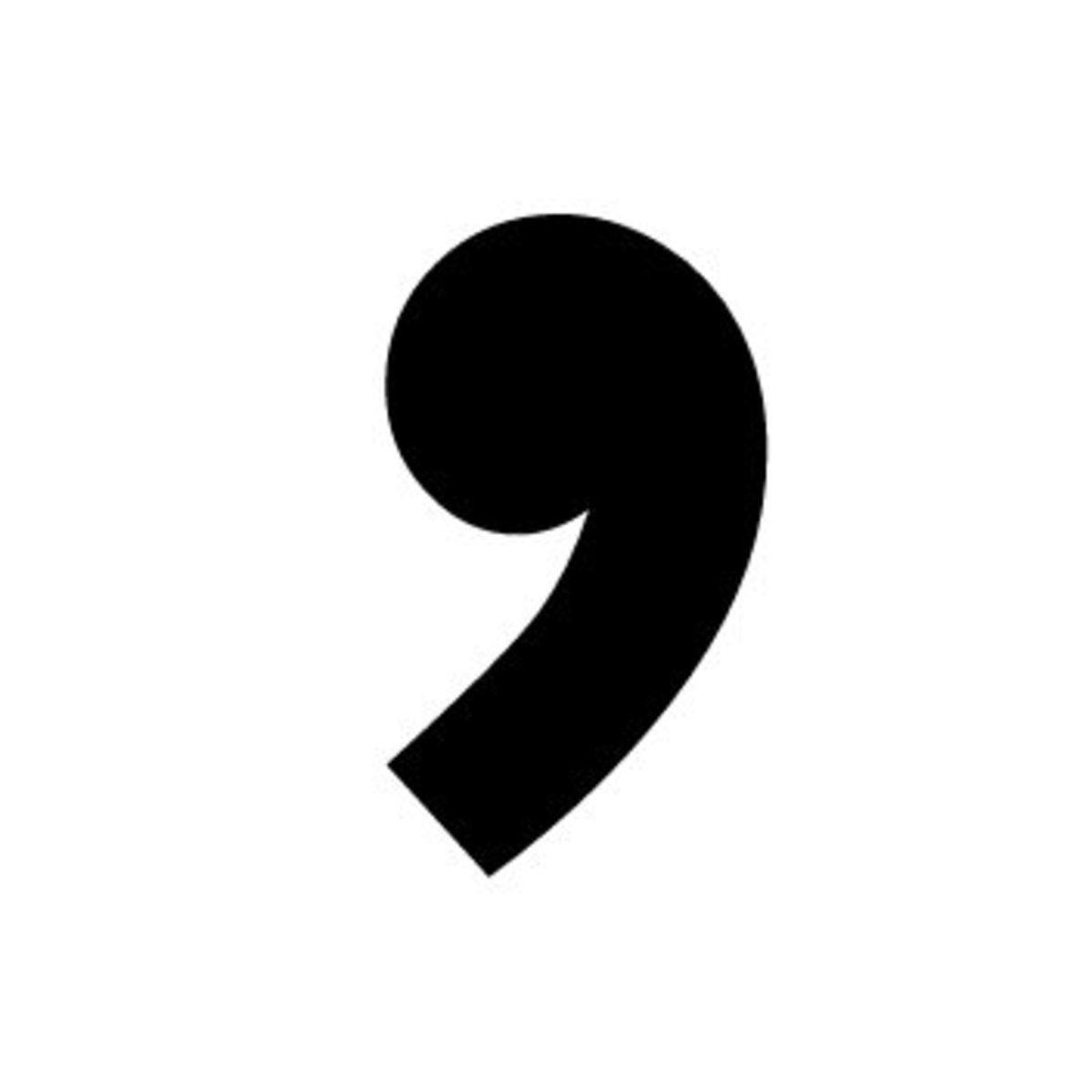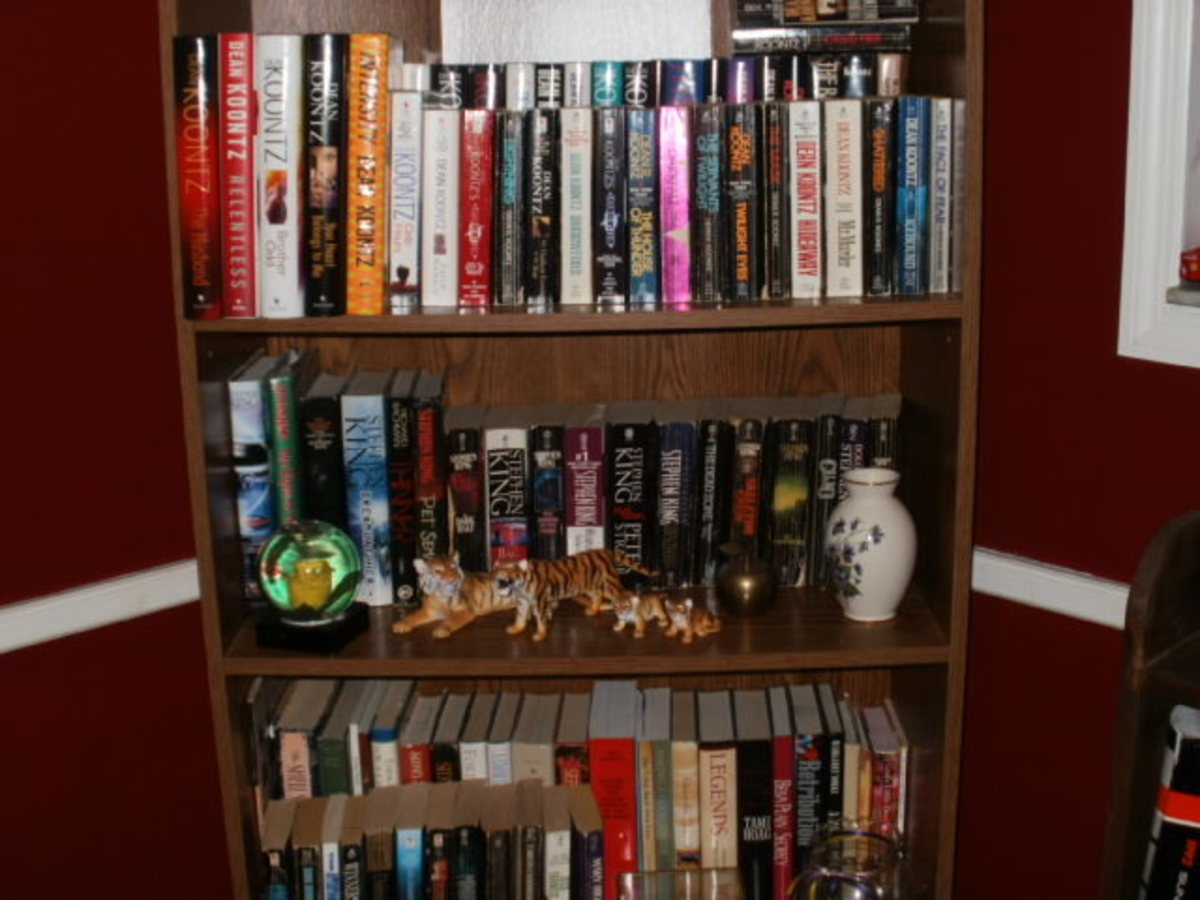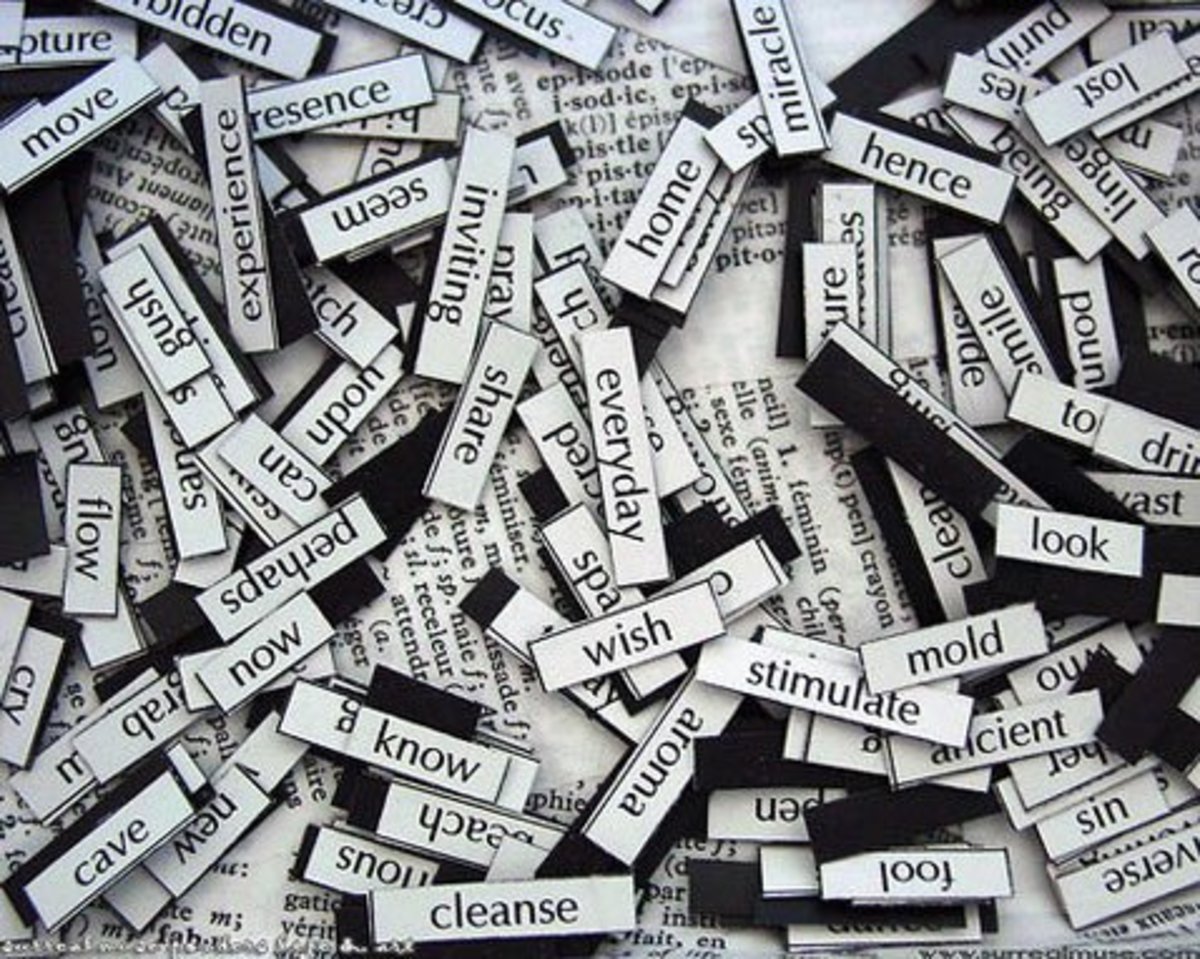How to Improve Your Writing & Credibility with Proper Grammar
Ensure that your writing is fully understood by your audience by complying with Standard English grammar rules. Understand the importance of having a grammatically correct article so that you can fully appreciate the hard work you put into making sure you have no mistakes in your writing.
Since we all age and forget the basic grammar rules we learn in grade school, I have provided a short guide on grammar for your review. Also, test yourself when you are giving birth to a masterpiece with a writing question checklist.
Plus, let’s not forget proper punctuation, commonly confused words, transitions, and other types of words that will help your writing flow like a river. Toward the end of this article is a section to help with grammar problems.
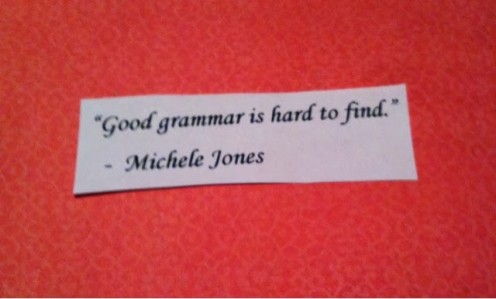
Appreciate the English Language: The Importance of Correct Grammar
It is critical to have correct spelling and grammar in your writing as it builds your credibility as an author. Have you ever read an article online, planned to take the critical advice from the expert you believe you are reading, only to find many spelling and grammar errors? I bet that made you think twice about listening to his or her advice.
Have you ever thought that maybe some authors should use some TLC when writing? We all make mistakes, so it is only human to have errors in one’s writing; when people begin writing, they are often in a hurry or just are new to the writing world. That’s why the power of editing was invented!
Depending on why you write, you may find that writing with less spelling and grammar mistakes will increase your readership, increase your profits, or increase your score on your writing website. The possibilities are endless.
Editing does not take much work, just a bit of knowledge of the concept. Once you feel secure with your spelling and grammar skills, you will see that editing your previous articles is a simple task.
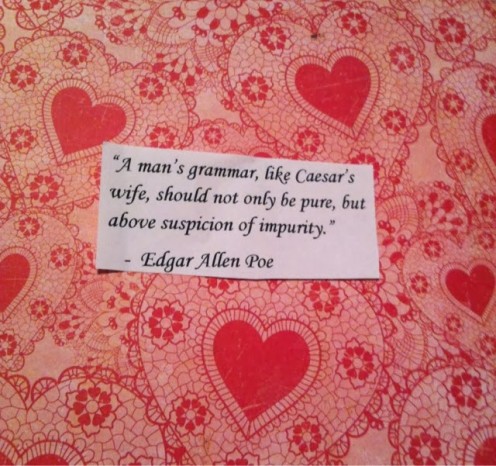
Relearn the Basics: A Grammar Guide for Writers
These are just some basic guidelines that writers should be aware of in order to write professionally. Depending on who you write for, what you write about, and how informal you write, some of these guidelines are just that: guidelines, not rules. Just take what you find to be useful for your unique writing.
As it’s said in one of my favorite movies, Pirates of the Caribbean, “…it's more what you’d call guidelines than actual rules.”
Guide to Grammar and Writing
- Guide to Grammar and Writing
The Guide to Grammar and Writing contains scores of digital handouts on Grammar and English usage, over 170 computer-graded quizzes, recommendations on writing -- from basic problems in subject-verb agreement and the use of articles to exercise.
University of North Carolina's Writing Center
- The Writing Center: Editing and Proofreading
The writing center helps you master the art of proofreading your own work. This is a crucial skill for a writer. You need to know what to look for and how to best edit your writing.
Here are some grammar basic tips:
1. Spell out numbers one through ten.
2. When closing out punctuation that is in quotation marks, keep the punctuation inside of the quotation marks.
3. Omit unnecessary words in order to make writing concise.
4. Include an introduction, a body with sub-points, and a conclusion.
5. When approaching a topic, consider a unique angle or point of view to entice your reader.
6. Avoid vague, overused language in your writing.
7. A lot is two separate words. “A lot” is not a word. That is a misspelling.
8. Avoid clichés, slang, and inappropriate use of jargon.
9. Try to use action verbs and precise nouns.
10. Clear up ambiguous references.
Now, let’s briefly review the parts of speech.
1. Noun – a person, place, thing, quality, or idea
Type of Noun
| Description
| Example
|
|---|---|---|
Proper
| Capitalize
| Oklahoma, Jennifer
|
Common
| Normal
| bear, clock
|
2. Pronoun – a specific noun that takes the place of the preceding noun of a sentence
Subject
| Object
| Possessive
|
|---|---|---|
I
| me
| mine
|
We
| us
| ours
|
You
| you
| yours
|
He
| him
| his
|
It
| it
| its
|
They
| them
| theirs
|
3. Verb – a word that describes the action in the sentence
Type of Verb
| Present Tense of Verb
| Past Tense of Verb
|
|---|---|---|
Normal
| Cooking
| Cooked
|
Normal
| Hunting
| Hunted
|
Normal
| Yelling
| Yelled
|
Irregular
| Come
| Came
|
Irregular
| Bring
| Brought
|
Irregular
| Fly
| Flew
|
Irregular
| Go
| Went
|
Irregular
| Have
| Had
|
Irregular
| Lie
| Lay
|
Note: I set up the conjugations of "to be" in the same way verb conjugations are set up in Spanish. Starting from top to bottom, and then left to right: I, You, He/She/It, We, You All, and the plural of He/She/It (They).
In the English language, we should feel lucky. Most languages conjugate all of their verbs in the manner that we conjugate “to be.” In learning the English language, we only have to learn the complicated conjugations of this one verb. So, let’s get to it.
The Present Tense Conjugations of "To Be"
I am
| We are
|
You are
| You are
|
He is
| They are
|
The Future Tense Conjugations of "To Be"
I shall be
| We shall be
|
You will be
| You will be
|
She will be
| They will be
|
The Present Perfect Tense Conjugations of "To Be"
I have been
| We have been
|
You have been
| You have been
|
He has been
| They have been
|
The Past Tense Conjugations of "To Be"
I was
| We were
|
You were
| You were
|
She was
| They were
|
The Past Perfect Tense Conjugations of "To Be"
I had been
| We had been
|
You had been
| You had been
|
He had been
| They had been
|
The Future Perfect Tense Conjugations of "To Be"
I shall have (been)
| We shall have (been)
|
You will have (been)
| You will have (been)
|
He will have (been)
| They will have (been)
|
4. Adjective – descriptive words; refers to color, shape, size, or type
Types of Adjectives
Positive
| Comparative
| Superlative
|
|---|---|---|
Standard form
| Compares two nouns (add -er)
| Compares one noun to many others (add -est)
|
The = Definite article refers to one noun; A/An = Indefinite articles
5. Adverb – describes a verb or adverb; typically ends with –ly
Types of Adverbs
Positive
| Comparative
| Superlative
|
|---|---|---|
Standard form
| The word "more" comes before the adverb
| The word "most" comes before the adverb
|
6. Preposition – expresses a relationship of a noun to another word.
Examples of Prepositions
Common
| Compound
|
|---|---|
At
| Ahead of
|
Before
| Because of
|
By
| By way of
|
For
| In reference to
|
In
| Instead of
|
Of
| Out of
|
During
| Up to
|
For
| |
On
| |
Out
| |
Over
| |
To
| |
With
|
7. Conjunction – connects words in a sentence
Examples of Conjunctions
and
| as
| because
|
before
| but
| if
|
or
| nor
| since
|
so that
| than
| though
|
unless
| until
| when
|
whenever
| while
| where
|
8. Interjection – a word or more than one word that expresses emotions

Test Yourself: A Writing Question Checklist
- Are all sentences complete?
- Are all words spelled correctly?
- Is the verb tense consistent throughout the article?
- Are contradictions used properly?
- Are there run-on sentences or comma splices?
- Is the page well organized and easy to read?
- Are commas, colons, and semi-colons used properly?
- Are all quotations closed off?
McGraw-Hill's Proofreading Handbook


Use the Power of Punctuation to Wow Your Readers
a. The Importance of the Comma
Commas help readers understand your sentence and not puzzle over your meaning.
1. Between independent clauses joined by a coordinating conjunction (and, or, but, so, for, and yet):
"Working and going to school can be difficult, but it can be done."
2. To separate an introductory word, phrase, or clause:
"When you complete all of your degree requirements, you will be rewarded with a degree."
3. To set off a nonrestrictive word group (extra information):
Nonrestrictive: "College degrees, especially in the technical area, are helpful in finding good jobs."
Restrictive: "The degree adds credibility that was not previously there."
4. To set off a transitional, parenthetical, or contrasting expression; an absolute phrase; or a conjunctive adverb (however, therefore, consequently, etc.):
"Besides, the degree makes you more competitive in the job market."
5. To separate three or more items in a series:
"Preparing for a job interview requires networking, resume writing, and interviewing."
6. Between a complete direct quotation and the text identifying the speaker:
"I said, 'I will begin writing my resume immediately.'"
7. To set off a direct address or a mild interjection in dialogue:
“John, you need to start writing now.”
8. Between coordinate adjectives (modify a noun equally and independently):
Coordinate adjectives: "My resume is a long, informative document."
Non-coordinate adjective: "It shows that I want to be a high school English teacher."
9. To set off dates, numbers, addresses, and titles:
"I will start teaching on October 19, 2012, for the Valley Home Independent School District."
10. To prevent misreading:
“John, Tom Smith is starting school on the twenty-sixth.”
b. The Fun of Using a Semi-Colon
A semi-colon is an excellent tool to use to continue a thought process without losing the attention of the reader.
1. To separate independent clauses not joined by a coordinating conjunction:
"I spent an hour writing my lesson plan; I spent three hours revising it."
2. To replace commas at certain places if the sentence contains too many commas:
"The first step in teaching is preparing the lesson; the second step in teaching is conducting, evaluating, and re-teaching the lesson if necessary."
c. The Many Uses of the Colon
A colon can make reading fun and interesting by introducing new things, providing a neat-looking list, or organizing quotations.
1. To introduce a new idea:
“There is one thing you need to know about pies: they look and taste like heaven.”
2. To introduce a list:
“The soup contained easy ingredients: canned chili, tomato sauce, and pepper.”
3. To introduce quoted material:
My favorite quote from the play was sung on the piano: “My love is as full as the mountain is high.”
d. The Value of the Period
Periods are used to indicate the end of a sentence. Periods are also used in some abbreviations and numbers. Periods are valuable, because they indicate the end of a thought.
“This day is stressing me out.”
e. The Trickiness of the Apostrophe
An apostrophe can clear up the meaning of words. It is very helpful for readers so that they will understand what you are trying to say.
1. To use with contractions:
She is = She’s
I would = I’d
2. To show possession:
Karen’s apron is dirty.
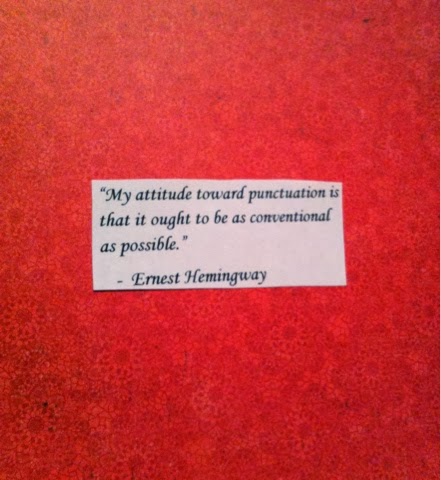
Magazine Article - Improving Writing
- Magazine Article: 50 Free Resources to Improve Writing
Effective writing skills are to a writer like petrol is to a car. Like the petrol and car relationship, without solid skills writers cannot move ahead. These skills don’t come overnight, and they require patience and determination.
Be Smart: Learn the Right Way to Use Commonly Confused Words
The English language is easy when it comes to conjugations, but there are many words that are commonly confused. These are just a few examples of words that can be written wrong, confusing the reader as to the meaning of your words. Look up a word if you are unsure if you are using it right or not.
a. Who’s versus Whose
Who’s = who is
Whose = A possessive word meaning “belonging to”
b. It’s versus Its
It’s = It is
Its = A possessive word for an object, such as “its performance”
c. There, Their, or They’re
There = referring to a place
Their = this is the possessive word for “they”
They’re = They are
d. To, Too, or Two
To = a preposition illustrating a location
Too = another word for “also”
Two = the number after one
e. Whether versus Weather
Whether = a dependent conjunction
Weather = the noun referring to the atmosphere outside
f. Affect versus Effect
Affect = a verb that influences the nouns in the sentence
Effect = a verb illustrating the result or consequence
g. Accept versus Except
Accept = a verb that means approval
Except = a preposition that means the exclusion of something
h. Passed versus Past
Passed = the action word meaning physically went by some place
Past = the opposite of the present (time-wise)
i. Your versus You’re
Your = Possessive; “Your umbrella” or “Your sister”
You’re = You are
j. Cite, Site, or Sight
Cite = List the sources you used in your paper
Site = a location
Sight = The function your eyes have
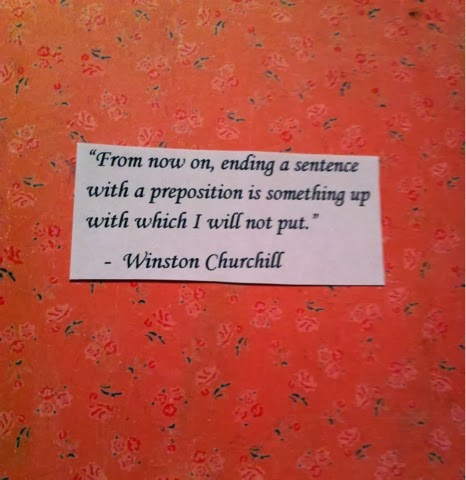
Be a Smooth Operator: Words to Help Your Writing Flow
The list below has many words that can be used to make smooth transitions between thoughts, points, ideas, topics, or other information. Use these words to put your points in the right order and keep your reader interested in what you have to say.
Transitions
Transitions help your writing flow. They specify the types of relationships between ideas and help your audience read with a clear understanding.
Examples of Transitions
Reason
| Example
|
|---|---|
To Add
| Again
|
To Prove
| For
|
To Show Time
| Soon
|
To Repeat
| As I said
|
To Emphasize
| Never
|
To Show and Example
| Take the case of
|
To Summarize
| Hence
|
To Show Exception
| In spite of
|
To Show Order
| Next
|
To Compare
| Where
|
Addition Words
These words should be used when you have several points to make on one topic.
Examples of Addition Words
again
| also
| as well as
|
similarly
| furthermore
| in addition
|
likewise
| next
| too
|
Cause Words
These explain why you brought up the reason you brought up and why you need to state the next sentence or phrase. It completes a thought or idea.
Examples include:
- Because
- For this reason
- Since
Chronological Words
Use these words to keep your writing organized by maintaining points in the order of importance. They also help readers follow your train of thought better.
Examples of Chronological Words
after
| always
|
at last
| before
|
finally
| first
|
second
| third
|
next
| then
|
until
| when
|
Become a golden writer. Give readers creative imagery by using similes and metaphors. An example of a simile is “She was sexy like a fox.” An example of a metaphor is “Her hair is silk.”
101 Ways to Impress With Your Writing

Contrast Words
These words contrast two opposing thoughts or phrases.
Example of Contrast Words:
- Although
- But
- Conversely
- Despite
- Even So
- However
- Nevertheless
- On the contrary
- On the other hand
Comparative Words
Use these words to discuss two similar forces. When writing a simile, the word “like” is used. For a metaphor, “as” is usually used. Similes and metaphors capture readers with the beautiful tapestry of your ideas displayed in your writing.
Examples of Comparative Words:
And, Both, Like, Similarly, Unlike, & Yet
Concluding Words
A conclusion usually needs an indicator word showing that you are summing things up. Besides the concluding paragraph, you may use it in the body of your writing to show a logical order and an even flow to your subject matter.
Example of Concluding Words:
- Finally
- Hence
- So
- Overall
- Therefore
- Thus
- In Conclusion
Do you edit your writing?
Effect Words
Effect words explain the result of your point.
- As a Result
- Consequently
- For this Reason
- Resulting
- Therefore
- Thus
Emphasis Words
These words allow the reader to clearly see the focus of the paragraph.
- Above All
- Especially
- In Fact
Repetition Words
Sometimes, you must reiterate a word, phrase, or point in order to show its importance. I would recommend using repetition with caution. However, if you feel you need to remind your reader of an important point, you should use repetition words.
- Again
- As Stated Before
- To Reiterate
Ways to Improve Your Online Writing

Space Words
These are movement words. They can indicate points in other areas of your article or emphasis points in your current paragraph. You may also want to include a space word to explain a physical area, space, or location.
- Above
- Adjacent to
- Alongside
- Among
- Around
- Below
- Between
- Beyond
- Down
- Forward
- In front of
- Next to
- On top of
- Over
- Under
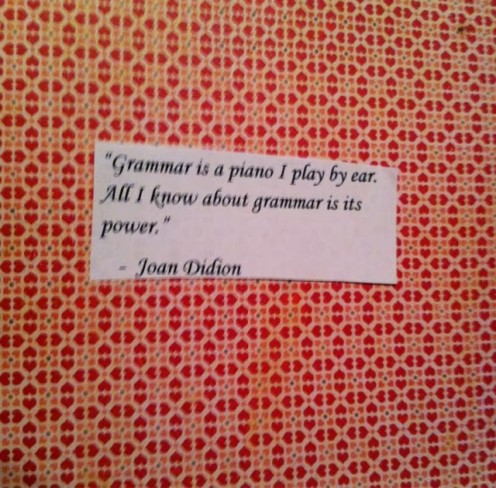
Stay Out of Trouble: Preventing Common Grammar Problems
These problems can often cause writers to lose focus and credibility. Stay on track by staying on top of these items.
1. Run-on Sentences – when two independent clauses are joined together without punctuation or connecting words.
2. Comma Splices – when two independent clauses are joined together by only a comma.
3. Misplaced Modifiers – these are words, phrases, or clauses that do not clearly point to the word or words that they modify.
4. Misused Homophones – homophones are words that sound alike, but have different spellings and meanings.
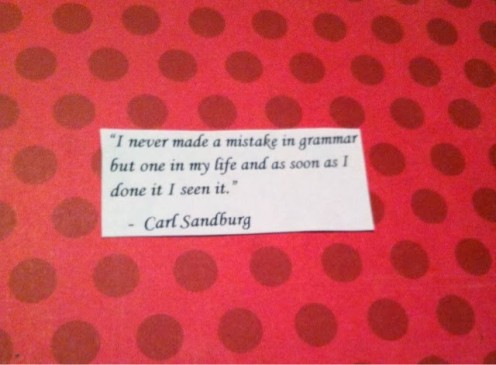
Make your writing the best it can be by using the English language in the right way. Proper grammar will also help your readers understand what you want to tell them. Edit carefully, and respect your readers’ time. Realize they are taking time to read your written word. Sloppy editing can cause readers to misunderstand what you have written, causing you to lose readership and credibility.
Other Excellent Sources on HubPages for Grammar and Writing
- Writing Mistakes To Avoid So You Can Appear To Be Intelligent
These are some of the most common mistakes writers make. The fix is easy, so read on and find out how to avoid these boo boos. Please check out more of BillyBuc's hubs to learn more about writing essentials and encouragement! - The Importance of Grammar, Spelling, and Punctuation in Your Writing
This article covers the importance of using good grammar, correct spelling, and the right punctuation in your writing. You can learn a lot from this writer.
Basic English Grammar Lessons
Common 6 Mistakes to Avoid
Plan Your Article With Success
- Get a Hole in One: Improve Your Writing with Proper Planning
During the planning stage of writing, you can develop new ideas and improve your writing in an organized, easy-to-read fashion. You can shape your main ideas into sub-topics. Plan well to succeed in the writing industry!
Research Information for Your Article Writing
- Tweak or Create a Winning Article with Proper Research & Resources
Learn to research. It is an important skill for a writer. An author should be able to tweak or create their writing based on excellent research including facts and data, and show an ace article as a result!
The Writing Process
Start out your writing in the best way by following these steps: (1) Planning, (2) Researching, and (3) Editing. The planning article will help you learn how to be more organized. Learn how to write in an improved manner by following the easy ideas in the planning article listed below.
Ensure proper research in order to entice your reader. You want your writing to be a page-turner. If you have hard core facts, figures, diagrams, charts, graphs, etc. you show that you have done your research on the topic. Being comprehensive in your subject matter will make your reader come back to your article again and again in order to reference it, because it has all of the information he or she needs.
Now that you have planned out and written your masterpiece, you need to make sure what you wrote can be understood by the reader. Regardless of your message or the amount of research you do, if you do not edit or check over what you write, you could be unfairly ignored. Think about it. If a reader begins to get drawn into your writing, but finds out that commas are missing or colons aren't used properly, he or she may not understand what you are trying to say.
If the wrong words are used, the reader may not know what you mean. In fact, often readers misunderstand what the writer is saying. This can make readers frustrated and cause them to stop reading, especially if they realize halfway through a story that they were thinking a character was someone he wasn't. In other words, choose your words wisely, and ensure that what you write makes sense.
Know How to Use the APA Writing Style in Your Writing
- APA Writing: Format, Style, and In-Text Citations with Examples
In writing a research paper, knowing how to use the APA format and APA style is crucial for writing in the social sciences. Some colleges require all papers to be written in APA style. Also, many writing sites request this style, so learn it today!
Learn How to Cite Your Sources Using the APA Writing Style
- APA Writing: APA Format and APA Style of References
In writing a research paper, knowing how to use the APA style is important for writing in the social sciences. References can be a huge part of your grade in a research paper for school. They are also an important part of writing for many websites.
Why is the APA Style of Writing Important?
Many websites require that you use the writing style of APA that you learned in school when referencing sources in your writing and when creating citations at the bottom of your writing. Therefore, it is crucial to learn the elements of this writing style.
I will admit that I had always written my papers in MLA style, so when I entered my Master's degree program and began writing on HubPages, I was required to learn the APA style. It seemed like a foreign language to me, but once I got it down, it was not so difficult. Learn the style so that you can properly cite sources in your writing, or if you are in school, get ahead by learning this style.
Disclaimer:
Pictures: The images provided in this article were provided by Michele Jones.
Videos: The videos provided in this article were found free on YouTube.
Editing: If you find any spelling or grammar mistakes in this article, please let me know, so that I may correct them for others.
HubPages: Feel free to ask me a direction question regarding this article in the comment section. If you found this article to be useful or interesting, please:
- Rate it
- Share it
- Leave a comment or question
Thanks for stopping by!

